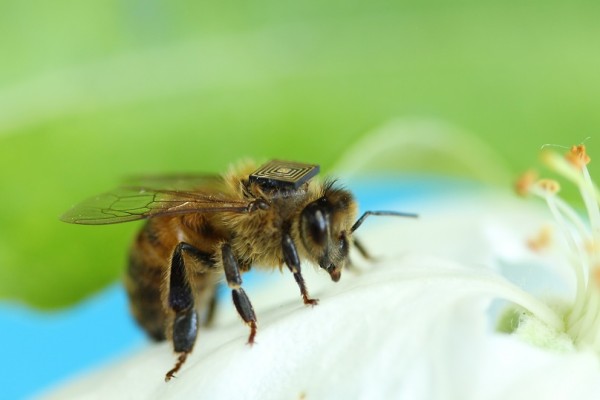Researchers from Australia are now leading efforts in the prevention of collapsing honeybee populations where they began to monitor bees with tiny micro sensors from Intel in order to acquire data from different climate conditions and how they respond to stress factors like pesticides.
According to Paulo de Souza from the CSIRO (Commonwealth Scientific and Industrial Research Organization), the major factors and sources why bees all over the world start to disappear are air pollution, water contamination and agricultural chemicals along with the onslaught of extreme weather and pests, pathogens and parasites such as the Varroa mite.
Their diet can also be blamed since they feed on genetically modified pollen and overall mismanagement of hives can contribute to their current poor state of health.
De Souza explains that this has been a very complex structure to understand why bees are suddenly collapsing and natural hives around the world are disappearing. He adds that scientists in this global initiative are now working together in collaboration, using the same technology and data which can hopefully yield better knowledge about what is causing the collapse of our bees before it's too late.
To date, there are regions on the planet where the suffering of bees already reached a critical point that is mainly due to the Varroa mite and colony collapse disorder that destroyed millions of bee colonies and hives.
De Souza warns that places such as China where there are already no bees to pollinate crops, are now resorting to humans doing the work of bees in which they cannot efficiently work the same way as bees can. If something like this will happen in Australia or the U.S., prices for food products that were usually taken for granted such as apples will reach sky high.
The professor and his team now hopes that this global research initiative can soon provide pivotal answers on how different stress factors can greatly affect the health of honeybees. He says that someday, scientists will be able to respond to those discoveries with efficient strategies to keep beehives healthier and to withstand stress factors compared to how bees are faring now.
These stresses are mostly man made which means that there should be sufficient management on how to keep bees from dying by maintaining an environment that is healthier for them that will also benefit the future of the human race.


